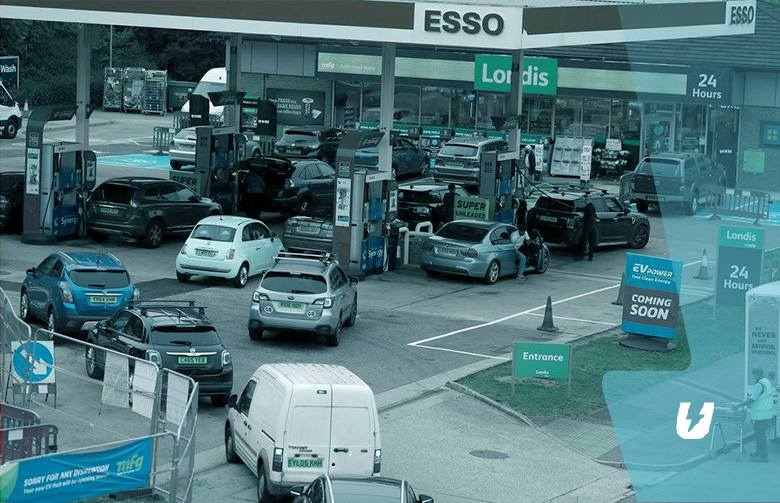The newest OZEV grant allows landlords to apply for EV charger installation subsidies.
To encourage the uptake of electric vehicles, the UK government provided grants and funding through the Office for Zero Emission Vehicles (OZEV), formerly the Office for Low Emission Vehicles (OLEV). Since its inception, the different OZEV grants have changed to cater to more sectors of the EV-driving citizenry.
One of these grants is the EV Chargepoint Grant for landlords of residential or commercial properties. Its most recent version came out in April 2022.
What Is This Grant About?
This scheme is a government grant for landlords for charge point installation within their property. This funding covers a portion of the amount needed to acquire an electric vehicle charger in domestic and commercial properties within the UK.
For each charging station installed, the landlord can get up to 75% of the government’s EV charging station incentives (towards the total cost of EV charger purchasing and fitting), capped at £350.
Imagine the amount of money you can save, especially if you factor in that a landlord of residential units can claim up to 200 grants per year. On the other hand, landlords of commercial properties can claim a maximum of 100 grants.
Another good thing about this grant is it’s not limited to a single property. In other words, it is also applicable to multiple locations.
Learn more insights about this topic at OZEV Grants
When Can You Apply?
Applications for the EV Chargepoint Grant for landlords started on the 1st of May 2022.

Who Can Apply For This Grant?
This funding is for entities that fall under the classification of a landlord as defined by the government grant. They rent, lease, and even manage properties for residential or business purposes.
Specifically, the following are the individuals considered landlords and can therefore apply for the charging grants of landlords or chargepoint funding scheme:
- the landlord of a property that lets the property
- right to manage (RTM) company
- companies owning the freehold of a leased or rented property
- companies comprised–of shareholders who are the leaseholders–who own a building’s common areas (or may also manage the building)
- property factor listed here on the property factor register; private registered providers of social housing (PRP)
- public authorities, such as government departments and their agencies, the armed forces, local governments, the NHS, and emergency services
- charities
How To Be Eligible?
If you are considering applying for the landlord grant, you must satisfy specific parameters to be eligible. Check out the parameters below:
- The property where you want the charger installed must be in England, Wales, Scotland, or Northern Ireland, except those in the Channel Islands and the Isle of Man
- Properties entitled to such a grant are (1) single-unit and multi-unit residential properties and (2) commercially rented locations with dedicated parking for either the staff or fleet of an existing or prospective tenant.
- If the grant application is for single-unit housing, the property cannot be your place of residence.
- When the application is for a commercially let structure, the chargepoint is for the exclusive use of the tenant’s fleet or staff.
- Landlord registration with the Driver and Vehicle Licensing Agency (DVLA). Click here for the registration form.
- Registration with Companies House or is VAT registered with Her Majesty’s Revenue and Customs (HMRC)
- At the time of installation, the list of approved devices under the Electric Vehicle Homecharge Scheme and Workplace Charging Scheme should mention your chargepoint
- Aside from safety purposes, don’t install your charging device, as only OZEV-certified installations make you eligible for the grant.
Learn more about how to qualify for an EV charger grand at OZEV Grant Requirements
Additional Keypoints About the Grant
- Aside from landlords, this grant scheme is also open to social housing providers.
- Tenants themselves can apply for a similar grant, the EVHS (now replaced by the EV Charger Grant,) if the landlord is ineligible for the landlord grant.
- The landlord grant is just one of the funding available for the inclusion of smart chargepoints in living spaces though it also provides subsidies for those in need of chargepoints for their staff and fleet.
- A parking space necessary for installing a chargepoint is a private, off-street location owned by the landlord or someone who has sole authority for its use.
- The installation location of the charger must be safe and always accessible.
- The DVLA administers this grant on behalf of OZEV.
The Future Of Driving
The driving landscape in the UK will look completely different in the next few years. While transitioning to electric driving can be quite a chore–given that we’ve anchored our lifestyle on fossil fuel for decades–its benefits to individuals and businesses far outweigh the hassles.
Zero-emission, electric vehicles promise cleaner, decarbonised air. This benefit can be enough incentive to ditch our petrol and diesel automobiles.
In addition, maintaining EVs is cheaper than their internal combustion engine (ICE) counterparts. The financial rewards go far beyond maintenance costs and even include tax incentives!
According to a report, we could be seeing 300,000 charging stations by 2030. This projection is in line with the government’s NET Zero Strategy—the UK’s move to going fully electric in terms of transportation. The massive number of EV chargers also aims to provide a more robust and reliable electric vehicle charging infrastructure.
On The Ground
At the end of May 2022, the number of charging devices has seen a 21% increase from May 2021. Despite the substantial bump, many are still driving their old cars. However, this situation may change as we face a fuel crisis. Still, the switch may not be automatic, and some are still hesitating.
How does the current landlord grant figure into all this? The grant – which subsidises charging device installation in rental units – gives tenants additional accessibility to electric vehicle charging. Moreover, for those with EVs, the available charging facility can be factored into their overhead expenses, which is much less expensive than filling the tank of a petrol or diesel car.
Benefits Of A Home Or Work EV Chargepoint
While public charging facilities are available in different locations such as shopping centres, supermarkets, public parking spots, hotels, and some service stations, a readily available EV chargepoint at home or work provides several advantages.
Convenience and Accessibility
You don’t have to drive out of your way to charge your EV. Even when you only have access to a charger in the workplace, it still beats waiting in the queue at a station somewhere else. You can leave your car hooked up to the grid while working. It’s that simple.
Furthermore, the convenience and accessibility of a ready EV device are even more apparent at home. You can charge your car while you sleep, plus you can also take advantage of off-peak rates.
Savings
Refuelling our electric vehicles is less expensive than filling up ICE cars at petrol stations, especially with the current global fuel situation. We can further save on charging if we have our own EV chargers at home. Charge your car while you sleep to take advantage of off-peak rates so you can lower your EV charging expenses.
Added Property Value
In the future, properties have the potential for increased value as more people will need locations such as homes to have ready EV charging facilities when they move in. This setup may not be custom, but as more people switch to electric driving, a home (or work) charger will be indispensable when moving in.
Collinson Hall, a property management company, states that upgrading your property’s facilities and investing in tech are just some things you can do to improve your rental property’s ROI. Making your property electric vehicle-ready is both an upgrade and a tech investment.
Read More: Benefits of EV Charging Stations
A Bit Of Background
The previous EVHS or Electric Vehicle Homecharge Scheme catered to those needing a home chargepoint installation. However, when the EVHS ended on March 31, 2022, new grant schemes have taken their place.
The EVHS was closed to house owners at the end of March 2022 though it is open to those who own flats, and people who stay in rental accommodations (flats and single-use properties)
As mentioned earlier in this blog, the EV Chargepoint Grant for flat owner-occupiers and people living in rented properties replaced the EVHS.
The main changes to this new grant, according to the government website, are:
- the customer must live in rental accommodation or own a flat
- The installer must confirm ownership of the property. If rented, confirm the name and address of the person or entity letting the property as it appears on the rental agreement
- customers will no longer be able to claim two chargepoints if they own a second electric vehicle
Aside from this financial incentive, the government has, at the same time, introduced the EV Grant for Landlords.
Forward To A Greener UK
Take advantage of the different government financial aid and landlord grants UK and switch to electric vehicle driving now. Let’s all make that step towards a decarbonised UK sooner rather than later.
For a reliable, safe, and OZEV-accredited charging device for your tenants and properties, contact us now! Talk to us for a convenient and worry-free charger installation!


